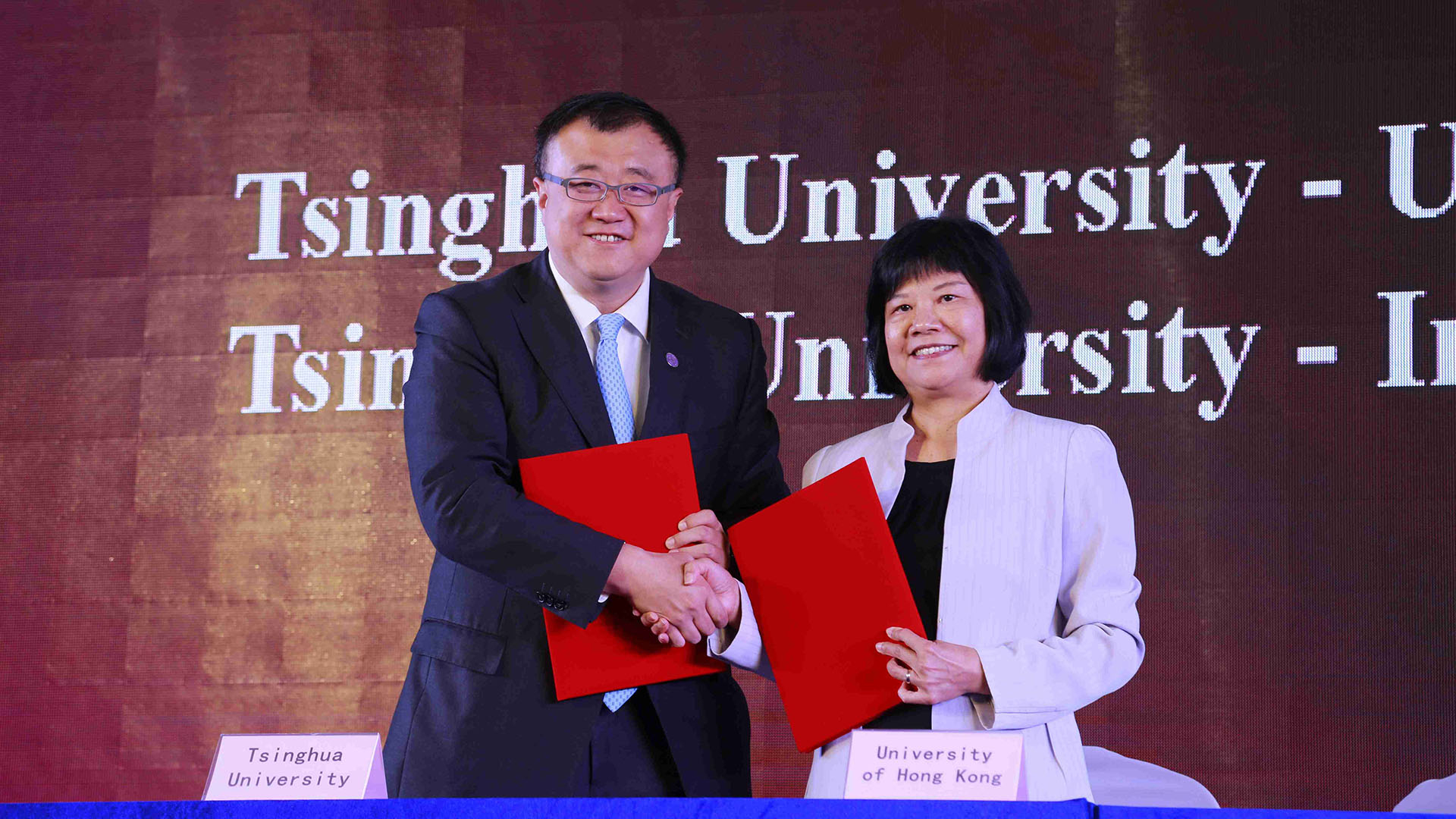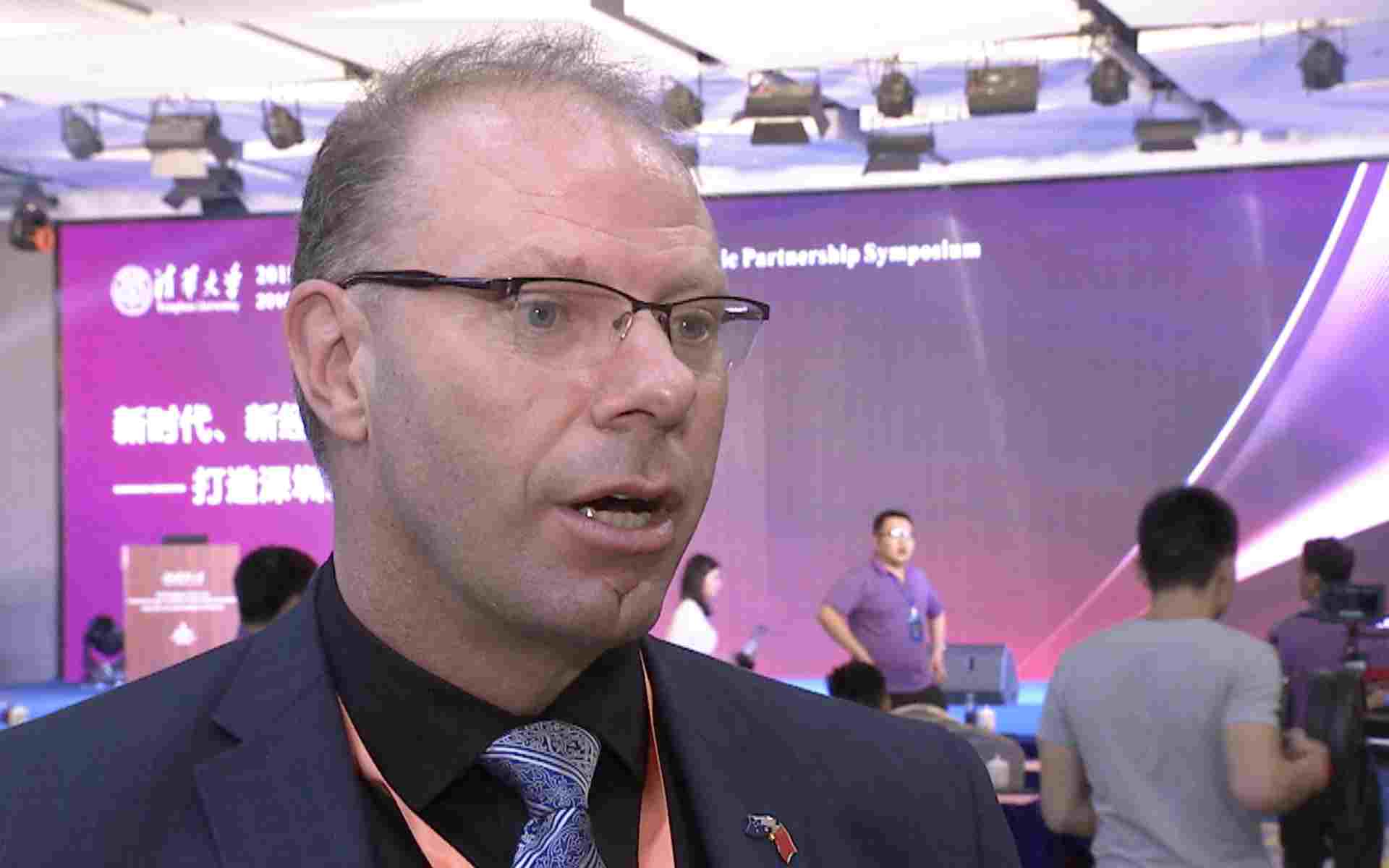
China
21:59, 18-Oct-2018
Tsinghua University signs strategic partnership with the Imperial and HKU
Updated
21:52, 21-Oct-2018
By Zhao Yuheng
02:13

Tsinghua University, one of China's top research university, hosts a symposium between October 18 and 19 in Shenzhen, a hub of innovation in south China's Guangdong Province.
Over 150 participants from world's top universities such as Imperial College London, Tokyo University, and Peter the Great Saint-Petersburg Polytechnic University (SPbPU), as well as Shenzhen municipal government and companies, participated in the symposium.
From 2017, Tsinghua University has cooperated with five institutes of higher learning in four countries in fields such as quantum computing, advanced manufacturing, environment, and international commercial law.
"We have started many projects and the university has also set up a special fund and plan. Tsinghua and its partners have co-published essays and co-applied patents as well as organized exchange programs," said Wang Yan, vice dean of Scientific R&D Office of Tsinghua University.
"Looking ahead, we hope to do more pilot studies in more cutting-edge areas," Professor Yang Bin, vice president and provost of Tsinghua University told CGTN, adding "like more research in artificial intelligence, smart cities, and intellectual manufacturing."
Tsinghua signed a new strategic partnership program at the symposium with Imperial College London and the University of Hong Kong (HKU), while renewing programs with University of New South Wales, University of Alberta, and SPbPU. Partnership with University of Tokyo, Tohoku University, and Monash University is also on the roadmap. The goal is to create a more profound platform for global academic cooperation.
"Academics have always (been) valued and thrived on free exchange of ideas across the world," said director of Energy Futures Lab of Imperial College London, Professor Tim Green. "Diversity of ideas matters. Men and women, (from) different nations, (with) different backgrounds, (and with) different orientations – all of these things matter to have a vibrant research environment."
Collaboration instead of isolationism
"It is important for us to connect with other universities in China and the world to make sure our researchers have the opportunity to work with the best people, and most important of all, is to translate their knowledge into society, so we can make the world a better place," Warwick Dawson, director of Knowledge Exchange Division of Enterprise of University of New South Wales told CGTN. "Collaborating with Tsinghua enables us to do that."

Warwick Dawson, director of Knowledge Exchange Division of Enterprise of University of New South Wales during an interview with CGTN. /CGTN Photo
Warwick Dawson, director of Knowledge Exchange Division of Enterprise of University of New South Wales during an interview with CGTN. /CGTN Photo
The rising trend of isolationism and anti-globalization in some part of the world worries some of the participants, who think the academia should do more to show the world the benefits of global cooperation.
"Although the UK academic world faces a difficult challenge with leaving the EU, our university is committed to its staff to maintain flexibility and be able to recruit across Europe and the world," said Professor Green. "Anti-globalization is a difficulty for nations. We have to show by examples that cooperation has positive outcomes. Perhaps those of us who have seen it first hand or enjoyed it have not talked about it enough with people outside our professional environment."
Tsinghua has so far formed strategic partnerships with seven overseas universities and launched projects in fields from quantum science to material science to law.
The university's 2,800 international students make up about six percent of its student body.
(Cover: Tsinghua University has signed a strategic partnership program with HKU. /CGTN Photo)

SITEMAP
Copyright © 2018 CGTN. Beijing ICP prepared NO.16065310-3
Copyright © 2018 CGTN. Beijing ICP prepared NO.16065310-3